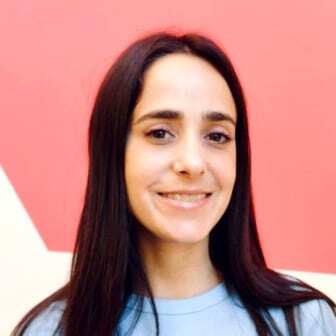Hire Remote C++ developers remotely in 2026
C++ is a general-purpose, high-level programming language developed as an extension of the C programming language. It supports various programming paradigms, including procedural, object-oriented, and generic programming. C++ is a compiled language that offers strong type checking, memory management capabilities, support for templates and generics, multiple inheritance, operator overloading, and exception handling.
The importance of C++ lies in its versatility, performance, and popularity. Its support for object-oriented programming makes organizing and structuring code easier, leading to more reusable and maintainable code. This guide looks at the various skills a C++ developer must have and other important information about hiring software developers! So, let’s get going:
What to Look for When Hiring C++ Developers?
C++ is well-suited for performance-critical applications like back-end heavy solutions, financial software, scientific computing, and embedded systems. Organizations that develop such applications may need to hire C++ developers with the skills and expertise required to design and implement complex software systems using this language. Let's look at what to skills to look for when hiring C++ developers:
Technical Skills
A strong C++ developer should have a deep understanding of the language and its features and a solid foundation in software engineering best practices. When hiring a C++ developer, here are some key technical skills to look for:
- Proficiency in C++ programming: The developer should have a strong understanding of C++ syntax, data structures, algorithms, and memory management.
- Object-oriented programming (OOP) skills: The developer should be skilled in OOP concepts such as encapsulation, inheritance, and polymorphism, as C++ is a popular language for OOP development.
- Knowledge of programming paradigms: C++ supports a range of programming paradigms, such as procedural programming, generic programming, and meta-programming. The developer should have a solid understanding of these paradigms and be able to apply them effectively.
- Debugging and testing skills: The developer should be skilled in debugging and testing C++ code using tools such as gdb and Valgrind.
- Knowledge of libraries and frameworks: C++ has a vast ecosystem of libraries and frameworks, so the developer should have experience with relevant libraries and frameworks such as Boost and Qt.
- Knowledge of software development methodologies: The developer should be familiar with methodologies such as Agile or Scrum and source control systems like Git or SVN.
- Understanding of operating systems and hardware: C++ is the backbone of most system-level applications, so the developer should understand operating systems and hardware architecture well.
Cross-Functional Collaboration
Cross-functional collaboration is an important skill for C++ developers because they often work in teams with developers, testers, project managers, and other stakeholders. Strong cross-functional collaboration skills enable C++ developers to communicate effectively with team members from different disciplines. This results in better communication, fewer misunderstandings, and a more cohesive team.
Analytical and problem-solving skills
Analytical and problem-solving skills are crucial for a C++ developer because C++ is a complex programming language that requires logical thinking and the ability to solve complex problems. C++ developers must be able to analyze complex code, identify errors, and develop effective solutions to ensure that the program functions correctly.
C++ developers must understand how the code works, identify performance bottlenecks and optimize the code to make it run faster. This requires strong analytical skills to break down complex problems into smaller, manageable parts and the ability to think critically to develop innovative solutions.
Adaptability
C++ has been around for decades and has undergone many changes, making it a powerful, versatile, and widely used language. Moreover, being adaptable also means working in different environments, with different people, and on various projects. C++ developers who are flexible can quickly adapt to new team dynamics, different project requirements, and even different programming languages. It makes them more versatile and valuable in a rapidly changing industry.
Time management
C++ development can be complex and time-consuming, involving many tasks such as analyzing requirements, designing, coding, testing, and debugging. Additionally, C++ developers often work in teams, which requires coordination and effective communication to keep the project on track. Effective time management can help C++ developers prioritize tasks, estimate the time required to complete them and allocate resources effectively.
Memory management
Memory management is critical for C++ developers because C++ is a low-level programming language that gives developers direct control over computer memory. Unlike some high-level languages, C++ does not have a garbage collector, so the developer must manually manage memory allocation and deallocation. Managing memory efficiently makes C++ ideal for systems programming, where memory management is a key concern.
Top 5 C++ Developer Interview Questions
During a C++ developer interview, the interviewer will typically ask various technical questions to assess the candidate's knowledge, problem-solving abilities, and familiarity with programming concepts and tools. The following are the top five C++ developer interview questions that candidates should be prepared to answer:
What are the differences between C and C++?
This question tests the candidate's understanding of the fundamental differences between C and C++. C++ is a superset of C and includes additional features, such as object-oriented programming concepts, templates, and exceptions.
Explain the concept of inheritance in C++.
This question assesses the candidate's knowledge of programming in OOP. Inheritance is a core concept in object-oriented programming, and C++ supports single and multiple inheritances. The candidate should be able to explain how inheritance works, its benefits, and how it relates to other object-oriented concepts such as polymorphism and encapsulation.
What is a virtual function, and how does it work?
Virtual functions are a fundamental feature of C++, allowing the developer to override base class functions in derived classes. The candidate should be able to explain how virtual functions work, why they are essential, and when to use them.
What is the difference between a pointer and a reference in C++?
Pointers and references are used to manipulate memory in C++ but have different syntax and behavior. The candidate should be able to explain the difference between the two, including how they are declared, how they work, and when to use them.
How do you manage memory in C++?
Memory management is a critical concept in C++. The candidate should be able to explain the difference between stack and heap memory. They must also have an awareness of how to allocate and deallocate memory. Hiring managers also look for the ones who exhibit techniques for avoiding common memory-related issues. The candidate should also know C++ memory management tools like smart pointers and memory pools.
















